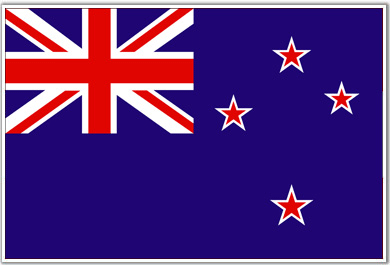纽西兰
Basic information:
- Location: Lying in the south-west Pacific, New Zealand consists of two main islands - the North Island and the South Island. Stewart Island and many smaller islands lie offshore.
- Population: About 4.9 million people. Students gain a truly global perspective from studying in New Zealand as it is a diverse Asia-Pacific nation drawing on its British and Māori heritage. New Zealand’s population has 200 ethnicities and 160 languages.
- New Zealand is ranked the most peaceful English-speaking country in the world in the 2019 Global Peace Index which compares 163 countries. New Zealand has held this ranking for the past 10 years. Source: Global Peace Index, Institute for Economics & Peace, 2018.
- The World Happiness Report 2019 ranked New Zealand as the 8th happiest country in the world (out of 156 countries). Source: World Happiness Report 2019 (from the Sustainable Development Solutions Network).
- Official languages: English, Māori & New Zealand Sign Language
- Climate: New Zealand's climate is mild, and ranges from subtropical in the north to temperate in the south.
|
Spring September - November |
Summer December - February |
Autumn/Fall March - May |
Winter June-August |
|
Average daytime temperature: 16 - 19˚C |
Average daytime temperature: 20 - 25˚C |
Average daytime temperature: 17 – 21˚C |
Average daytime temperature: 12 – 16˚C |
- Exchange rate: NZD$1 = RM2.60 (as of 13 April 2020 on xe.com)
System:
- New Zealand has eight state-funded universities, 16 Institutes of Technology and Polytechnics (ITPs) and about 550 Private Training Establishments (PTEs), which include English language schools.
- Universities offer higher degree-level education. Programmes are research-led and generally academic rather than vocational.
- All eight universities are ranked among the top 3 percent in the world. New Zealand is the only country in the world to have all its universities ranked within the top 500. Source: Quacquarelli Symonds (QS) World University Rankings 2018.
- In the 2020 QS World University Rankings, seven of New Zealand’s universities were in the top 100 in at least one subject.
- ITPs and a few larger PTEs offer vocational degree-level education.
- PTEs tend to offer specific vocational programmes, mainly at certificate and diploma level.
Tuition:
- Bachelor’s Degree - Fees range from about NZD$22,000 to NZD$32,000, with higher fees for subjects such as medicine and veterinary science. Many bachelor’s degrees can be completed in three years.
- Postgraduate Degree - Fees range from about NZD$26,000 to NZD$37,000, with higher fees for subjects such as medicine and veterinary science.
- International PhD students pay the same as New Zealand PhD students, which is about NZD$6,500 to NZD$9,000 per year for most subjects.
Work while you study
- International students have the same legal minimum rights and entitlements as anyone else working in New Zealand.
- These include your right to be paid at least the minimum wage, paid annual and public holidays, and rest breaks.
- If you have a Student Visa you may work:
- Up to 20 hours a week during term time
- Full-time during scheduled holidays
- If you are a Masters by research or PhD student, you may work full-time during term time and scheduled holidays.
Post-Study Work Rights
- New Zealand qualifications are internationally recognised. When students graduate, their qualifications will take them anywhere they want to go in the world – they are a student’s passport to success. You can also apply for a visa to work in New Zealand for up to 3 years after you finish your study if you have an acceptable qualification. For more information on post-study work rights, go to Immigration New Zealand.
Resources:
- Study In New Zealand https://www.studyinnewzealand.govt.nz
- Explore study programmes at all eight New Zealand universities:
- AUT University https://www.aut.ac.nz
- University of Auckland https://www.auckland.ac.nz
- University of Canterbury https://www.canterbury.ac.nz
- Lincoln University https://www.lincoln.ac.nz
- Massey University https://www.massey.ac.nz
- University of Otago https://www.otago.ac.nz
- Victoria University of Wellington https://www.wgtn.ac.nz
- University of Waikato https://www.waikato.ac.nz
- Find an ENZ Recognised Agency in West and East Malaysia here.


